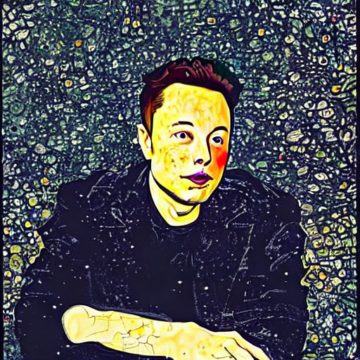 Agustin Ferrari Braun in Celebrity Studies (via Syllabus):
Agustin Ferrari Braun in Celebrity Studies (via Syllabus):
In November 2021, financial journalist Matt Levine asked an interesting question:
Is it consistent with [Elon] Musk’s fiduciary duties as chief executive officer and controlling shareholder of Tesla Inc. to sell or not sell $20.8 billion worth of stock […] based on the results of a Twitter poll? In answering this question, keep in mind that Tesla has a $1.2 trillion market capitalization and essentially free access to limitless capital, in part because Musk does so much entertaining reckless nonsense on Twitter.
This quote encapsulates Musk’s unique capacity to turn the movement of large sums of money into mass entertainment, benefitting from his position as ringmaster of the show. The South African entrepreneur has developed a special relationship with the markets, tying his public persona to the financial performance of his many ventures. Musk’s companies (including car manufacturer Tesla, aerospatial enterprise SpaceX, construction service The Boring Company, and neurotechnological developer Neuralink) cannot be separated from his celebrity image (Gamson 1994) of visionary genius. An image that has been carefully cultivated through his Twitter presence (Kosoff 2018, Levin 2018), media appearances (Duboff 2018, Grady 2018), and regular cameos in popular movies and shows like Machete Kills (2013), The Big Bang Theory (2015), or Rick and Morty (2019).
Celebrity businessmen are not a new thing: the robber-barons’ PR campaigns in the early 20th c. (Guthey et al. 2009), Gianni Agnelli’s personification of the triumphant Post-War Italian bourgeoisie (Nevola 2004), or Richard Branson’s early embrace of environmentalism (Prudham 2009) come to mind. However, Musk’s capacity to blend celebrity and corporate finances is characteristic of financialised capitalism, as a mode of capital accumulation that privileges control of flows of money and information over the production of commodities (Mader et al. 2020). While his approach is not unique, his commercial success and position in popular culture single him out as a particularly well-suited case study for this contingent form of business celebrity.
More here.
